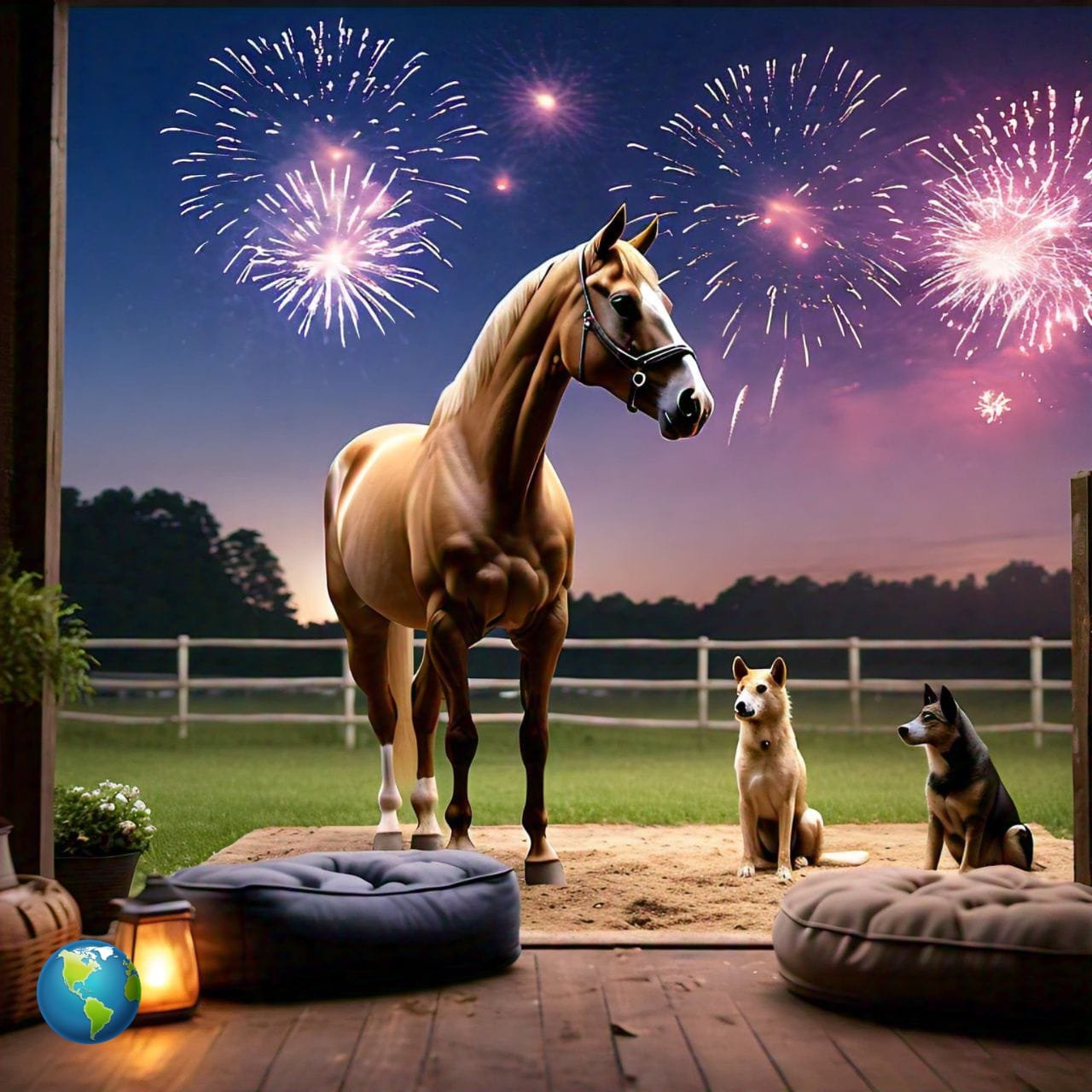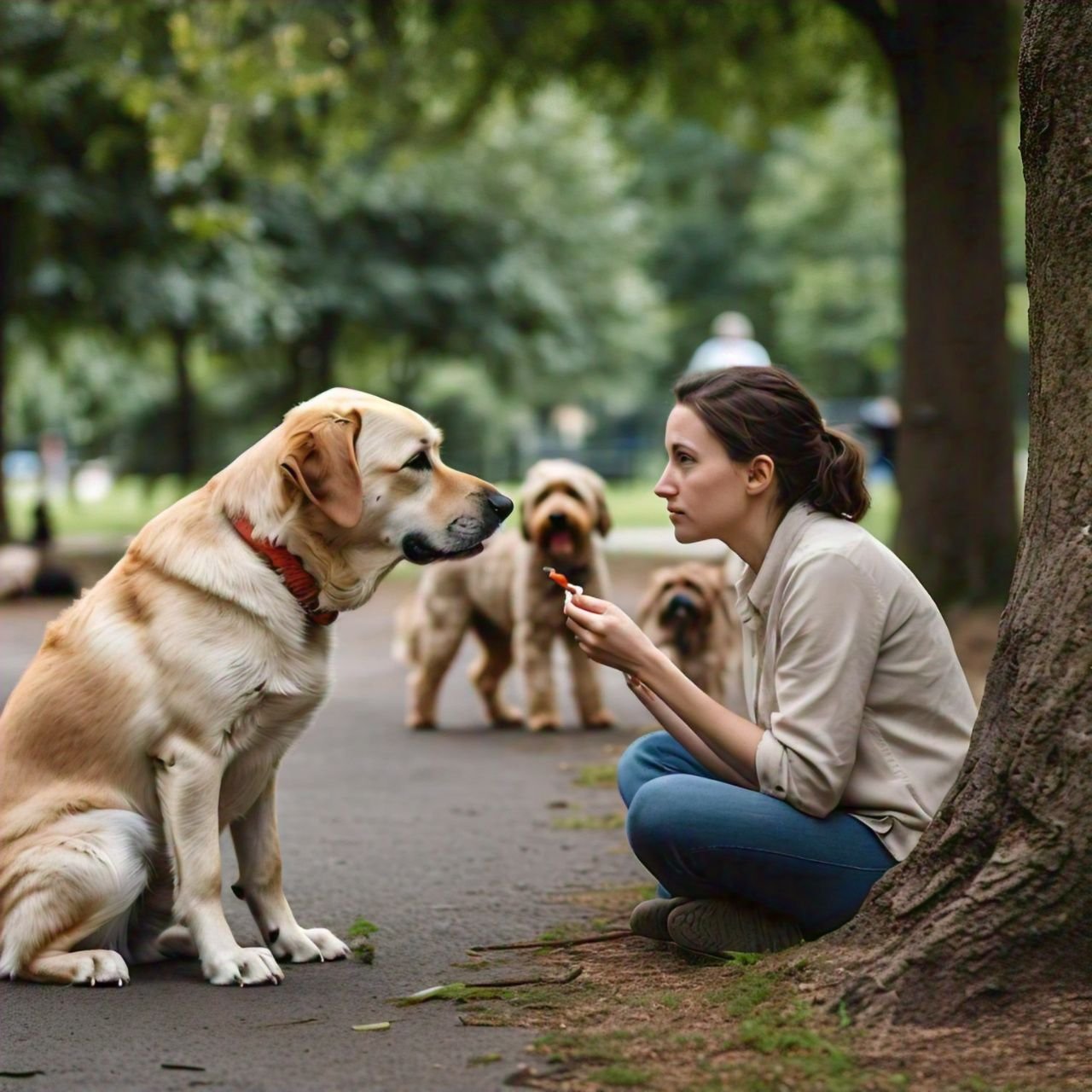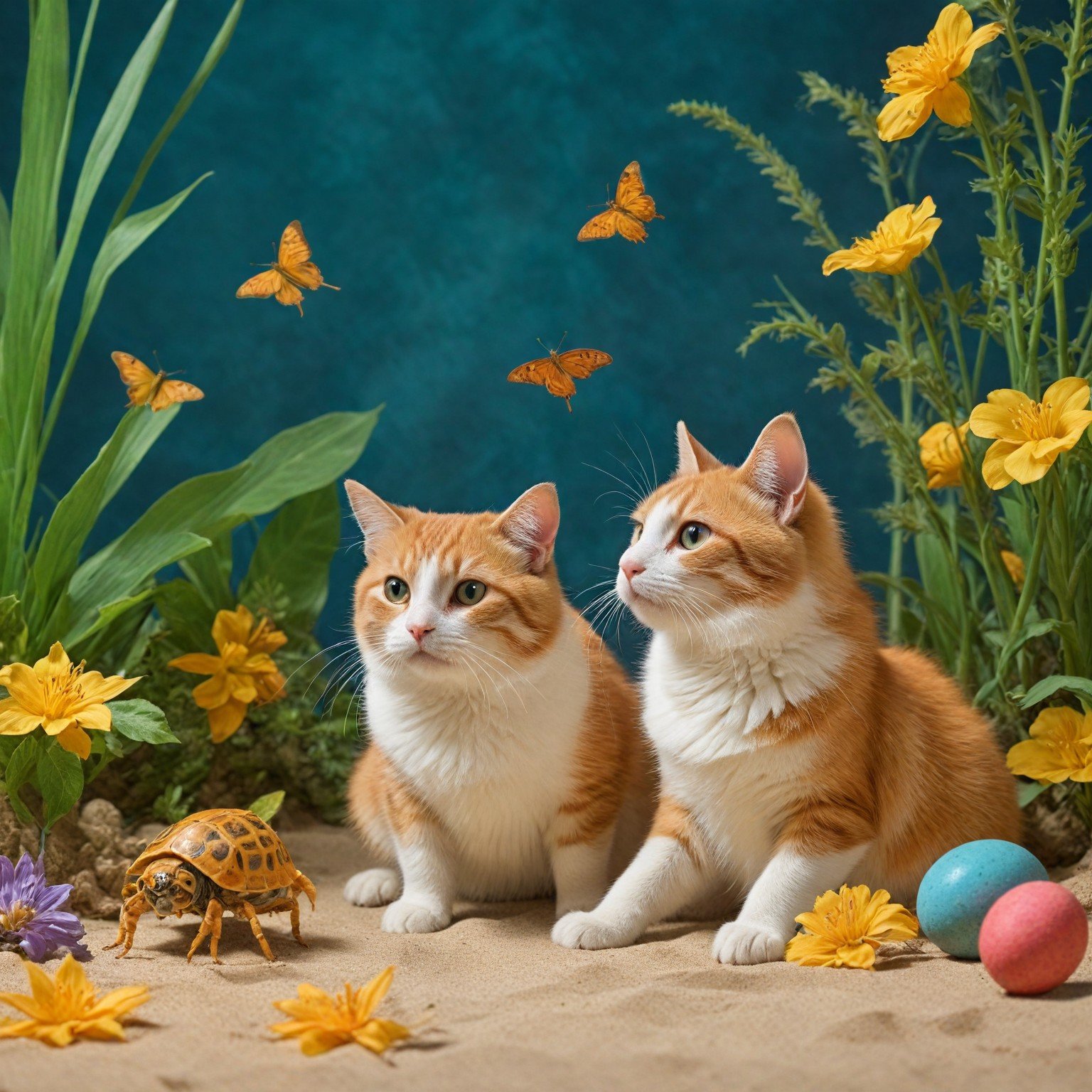Introduction to DIY Firework Desensitization Techniques
- Discover simple ways to help horses become less sensitive to fireworks with do-it-yourself techniques.
- Learn how to keep your horse relaxed and anxiety-free using our proven methods.
- For expert advice, continue reading now!
Why Fireworks Cause Anxiety in Horses
Horses, as prey animals, are naturally alert to sudden sounds and bright lights.
- Fireworks, known for their sudden bursts of light and loud noises, can cause fear in horses.
- Owners may observe signs such as:
- Pacing or restlessness
- Increased heart rate
- Sweating
- Trembling
Understanding the Impact of Fireworks on Equine Behavior
Horses, being prey animals, become more stressed when they hear fireworks.
- Loud noises and bright lights can make them feel very anxious, which can make them act in unpredictable ways.
- Some common reactions include:
- Fight or flight response: Horses may try to run away, putting themselves at risk of getting hurt.
- Faster Heart Rate: Stress affects the body, impacting health.
- Higher Adrenaline Levels: Causes anxiety and long-lasting stress.
- Social Anxiety: Anxious horses can disturb the peacefulness of the group.
- Less Eating: Anxiety affects the usual eating habits.
Creating a Safe and Comfortable Environment
Creating a peaceful atmosphere is important to help a horse feel less stressed during fireworks. Make sure the stable is clean and safe to make the horse feel secure.
Stable Setup:
- Make sure to fasten down any loose items.
- Keep your space clean and free of clutter.
- Use good insulation to help lower noise levels.
Ways to Ensure Comfort:
- Give enough bedding for extra comfort.
- Use fans or white noise machines to block outside noises.
- Use calming scents like lavender or essential oils.
Consistency and Routine:
- Stick to a set schedule for feeding and exercise.
- Introduce desensitization techniques slowly.
- Keep familiar companions or stablemates close by.
Gradual Desensitization Techniques
Gradual desensitization techniques involve slowly exposing the horse to the sound of fireworks in a controlled way. It is important to start with a low volume and gradually increase it over time.
- Use audio recordings of firework sounds.
- Start playing the recordings at a very low volume when the horse is relaxed.
- Slowly increase the volume in small steps.
- Consistently train the horse in these sessions, making sure the horse stays calm before increasing the intensity.
- Pair the sounds with something positive like treats or grooming to help create a positive association and reduce anxiety over time.
Sound therapy for horses involves playing recordings of fireworks to help them get used to the sounds. To get the best results, follow these steps:
- Choose high-quality recordings of different firework sounds.
- Start playing the recordings at a low volume and gradually increase it.
- Play the recordings daily to help the horse get familiar with the sounds.
- Reward the horse with treats during and after the sessions to reinforce positive behavior.
- Make sure the environment is calm to avoid causing additional stress to the horse.
- Keep a close eye on the horse’s reactions to the sounds and adjust the therapy as needed.
Sound therapy should be implemented several weeks before anticipated firework events for effectiveness.
Using treats and praise effectively can help reinforce calm behavior in horses during fireworks. To start, it’s important to choose high-value treats such as carrots or apples. Giving treats immediately after the horse displays calm behavior helps build a strong association. Consistency is key, so make sure to reward the horse consistently during desensitization sessions.
- Gradually expose the horse to low-level firework sounds while rewarding calm behavior.
- Use verbal cues like “calm” to help the horse associate words with positive rewards.
- Conduct short, frequent sessions to help maintain the horse’s engagement.
By incorporating positive reinforcement strategies, horses can learn to associate fireworks with positive experiences, which can help reduce stress.
Expert trainers and veterinarians are available to provide guidance on effective desensitization methods for horses. They can:
- Evaluate the horse’s behavior and specific triggers.
- Create personalized training programs for gradual exposure to fireworks.
- Offer safety tips for both the horse and handler.
- Help recognize signs of distress.
- Suggest natural supplements or medications for calming.
Seeking advice ensures a structured, safe, and successful approach to helping horses cope with fireworks.
Conclusion and Final Tips
It is important to use proper techniques to help horses feel more comfortable during fireworks. The key to effective training is to be patient, consistent, and use positive reinforcement.
Summary of Key Tips:
- Stick to a regular training schedule to build familiarity and confidence.
- Introduce the horse to noise gradually, starting with softer sounds and increasing volume over time.
- Reward the horse for staying calm with treats or affection.
- Make sure the training area is safe and free of any dangers.
- If progress seems to stall, seek advice from a professional.
By following these methods, you can help your horse stay calm and reduce stress during fireworks.
FAQ
How to help a horse get used to fireworks?
Helping a horse become accustomed to fireworks includes slowly introducing them to the sounds and sights in a controlled way. Begin with quiet recordings of fireworks and gradually turn up the volume. Rewarding calm behavior with treats and positive reinforcement consistently can create a positive connection.
What should I give my horse to help with fireworks anxiety?
Natural supplements like magnesium or herbal remedies such as valerian root or chamomile can be used to calm your horse during fireworks. It is important to always consult with a veterinarian before giving any supplements or medications to ensure safety and proper dosage.
How can you help your horse get used to loud sounds at home?
To desensitize your horse, start by playing recordings of fireworks at a low volume and gradually increase the volume over a few weeks. Give your horse treats and groom them while they listen to the sounds. Make sure the area is peaceful and free of distractions. Stick to a regular training routine.
What can I do to make my horse fearless?
To make your horse more confident around different stimuli, not just loud noises, you need to gradually expose them to sudden movements and new objects. Reward calm behavior consistently. Train them in various settings to boost their self-assurance. Seek advice from professional trainers for more advanced methods and support.
How can I ensure my horse feels safe and relaxed during fireworks?
Secure loose objects in the stable. Use materials to reduce noise levels. Provide enough bedding for comfort. Use devices like white noise machines or fans to block out external sounds. Use calming scents such as lavender or essential oils.
What Are the Signs of Firework Anxiety in Horses?
Some common signs of firework anxiety in horses include pacing, restlessness, increased heart rate, sweating, and trembling. It is important to recognize these symptoms early so that you can take proactive steps to calm your horse.
Why Are Horses Sensitive to Fireworks?
It is important to use proper techniques to help horses feel more comfortable during fireworks. The key to effective training is to be patient, consistent, and use positive reinforcement.
Summary of Key Tips:
- Stick to a regular training schedule to build familiarity and confidence.
- Introduce the horse to noise gradually, starting with softer sounds and increasing volume over time.
- Reward the horse for staying calm with treats or affection.
- Make sure the training area is safe and free of any dangers.
- If progress seems to stall, seek advice from a professional.
By following these methods, you can help your horse stay calm and reduce stress during fireworks.


